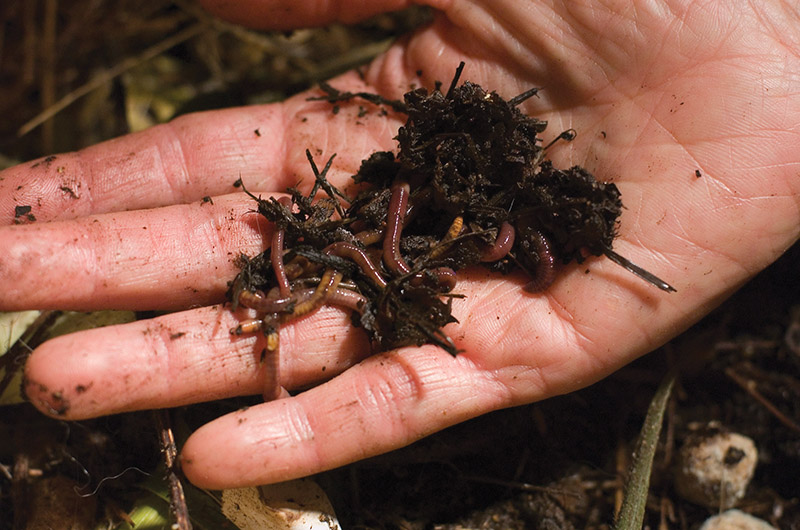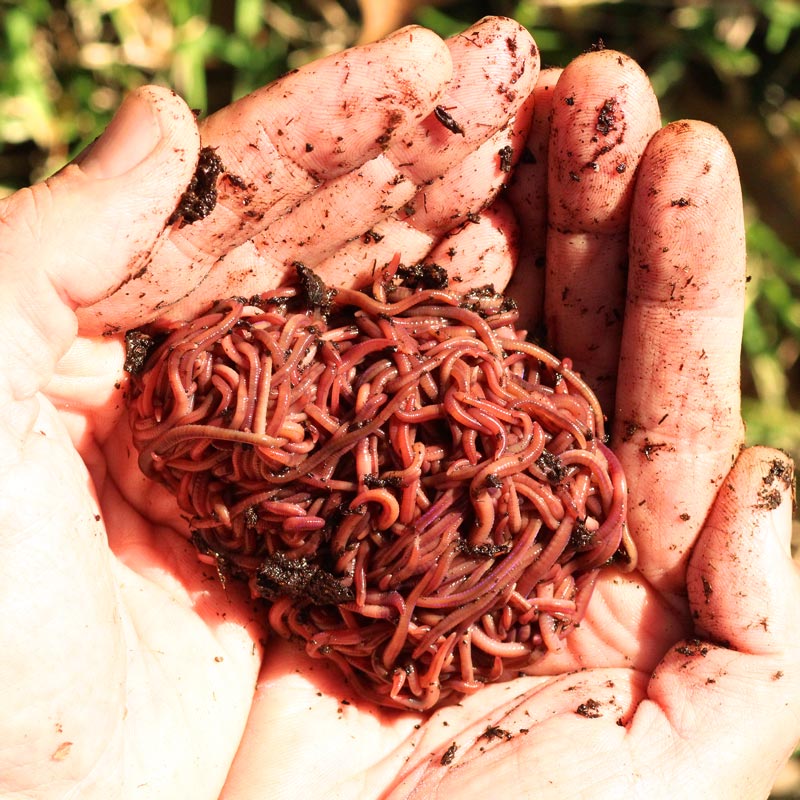Red Wiggler Worms - Perfect for Vermicomposting and Soil Enrichment
Red Wiggler Worms - Perfect for Vermicomposting and Soil Enrichment
Blog Article
Red Wiggler Worms Demystified: Opening the Keys of Vermiculture for Greener Living and Nutrient-Rich Dirt
In the world of sustainable practices for enriching soil high quality and advertising eco-conscious living, red wiggler worms play a critical yet often overlooked function. These simple creatures possess the amazing ability to transform natural waste right into nutrient-rich spreadings that work as a potent natural plant food. By delving into the globe of vermiculture, one can uncover a variety of benefits that prolong much past traditional composting techniques. Understanding the complexities of looking after these worms, maximizing their atmosphere, and using their castings can bring about a greener lifestyle and healthier dirt for plants to flourish.
The Duty of Red Wiggler Worms
Red Wiggler worms play a vital duty in composting systems by effectively damaging down raw material into nutrient-rich castings. These ravenous eaters consume a variety of natural materials, such as kitchen area scraps, yard waste, and paper items. As they feed, the worms' digestive processes damage down the raw material into a fine, dark, and nutrient-dense material referred to as worm spreadings or vermicompost.
The spreadings created by Red Wiggler worms are highly valuable for dirt health and wellness and plant development. They are abundant in important nutrients like potassium, phosphorus, and nitrogen, which are essential for sustaining healthy and balanced plant development. Furthermore, worm spreadings consist of valuable microorganisms and enzymes that help boost dirt structure, boost water retention, and enhance nutrient uptake by plants.
Benefits of Vermicomposting

Additionally, vermicompost, the nutrient-rich final result of vermicomposting, works as an excellent natural fertilizer and soil conditioner. It enhances dirt structure, enhances soil oygenation, and increases dirt wetness retention. These properties contribute to much healthier plants with more powerful root systems and better resistance to pests and illness. Vermicompost also improves the dirt with crucial nutrients like potassium, nitrogen, and phosphorus, promoting plant development and total dirt fertility.
Furthermore, vermicomposting assistances lasting horticulture practices by supplying a natural and chemical-free option to artificial fertilizers. Red Wiggler Worms. This eco pleasant technique not just enhances the soil yet also helps in reducing dependence on damaging chemicals, advertising a greener and extra lasting way of gardening
Establishing a Worm Bin
When developing a worm container for vermicomposting, appropriate configuration is critical to guarantee the success of the composting procedure. The very first step in setting up a worm bin is selecting an ideal container.
After including the bed linens, present the red wiggler worms to the container. The worms should then be given with food scraps such as fruit and vegetable peels, coffee premises, and eggshells.
Frequently check the moisture levels and temperature level in the worm bin to guarantee optimum conditions for the worms. With proper arrangement and upkeep, the worm container will effectively convert natural waste into nutrient-rich garden compost for your plants and yard.
Harvesting Worm Spreadings
To successfully gather nutrient-rich worm castings from your vermicomposting system, a systematic harvesting technique is important. When it comes time to collect the worm spreadings, there are a couple of key steps to follow to ensure a successful process.

Troubleshooting Common Issues
Identifying and attending to common challenges that might emerge throughout the vermicomposting process is vital for preserving a efficient and healthy and balanced worm container. One usual issue that vermicomposters encounter is overfeeding. Adding excess food scraps can cause a build-up of dampness and acidity in the worm bin, possibly harming the worms. To avoid this, feed the worms in moderation, ensuring that the food scraps are adequately broken down prior to including more. Another issue is unpleasant smells originating from the worm bin. Foul scents suggest anaerobic conditions, normally triggered by overwatering or insufficient air flow. To remedy this, readjust the moisture degrees by adding completely dry bed linen materials like shredded newspaper or cardboard and rise published here oygenation by transforming the bed linen regularly.
Furthermore, if the worm populace is declining or the worms show up harmful, maybe as a result of ecological stress factors such as extreme temperature levels or pH levels. Monitoring these aspects find this and making essential modifications is vital for the health of the worms. By troubleshooting these common problems promptly, vermicomposters can ensure a smooth and effective vermicomposting process while preserving a prospering worm populace.

Final Thought
In final thought, red wiggler worms play a crucial function in vermiculture by damaging down organic issue right into nutrient-rich dirt. Setting up a worm bin is important for effective vermiculture, and collecting worm castings supplies valuable garden compost for horticulture.
As they feed, the worms' digestion procedures damage down the organic issue into a fine, dark, and nutrient-dense material recognized as worm castings or vermicompost.
The spreadings produced by Red Wiggler worms are extremely valuable for dirt health and plant growth. Adding excess food scraps can lead to a build-up of dampness and acidity in the worm container, possibly harming the worms.Furthermore, if the worm population is declining or the worms appear harmful, it can be due to environmental stressors such as severe temperature levels or pH levels. Setting up a worm container is crucial for successful vermiculture, and harvesting worm next spreadings offers valuable compost for horticulture.
Report this page